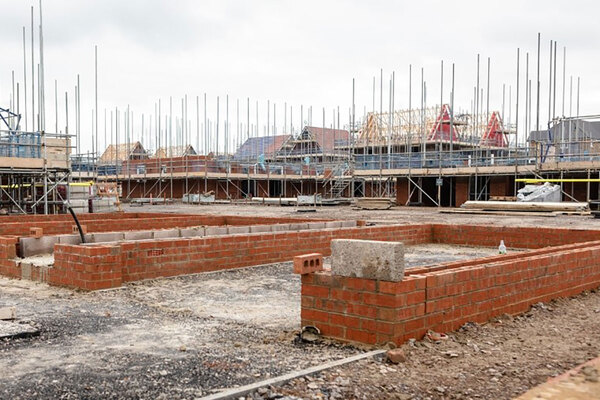You are viewing 1 of your 1 free articles

Richard Broadbent is environmental law director, and Penny Simpson is environmental law partner at Freeths
There are better approaches to nutrient neutrality that do not undo conservation regulations
The current conservation regulations already are appropriate for handling nutrient pollution. The government just needs to use them properly, write environmental lawyers Richard Broadbent and Penny Simpson
The recent reports of the prime minister and housing secretary thinking about the future of nutrient neutrality through further changes to the Levelling Up and Regeneration Bill have got us thinking.
True, the housing crisis is not assisted by the nutrient neutrality rules. But what we do not want, or need, is an undoing of the Conservation of Habitats and Species Regulations 2017. These are vital for the protection of our most important designated areas and their reach goes far beyond just nutrients.
In our view, the Conservation Regulations 2017 already provides a perfectly appropriate mechanism to allow the government to effectively deal with the nutrient pollution problem ie the habitat regulations assessment (HRA) derogation.
The derogation system allows plans and projects to proceed – even where there is a risk of adverse effect on integrity on a European site (eg through nutrient impacts) – where three derogation tests are met: there are no alternative solutions (NAS), there are imperative reasons of overriding public interest (IROPI), and the secretary of state secures that any necessary compensatory measures are taken to ensure that the overall coherence of Natura 2000 (the national site network) is protected.
If the government wants to help ease the current approach to nutrient neutrality, our view is that it needs to do three key things.
First, the government needs to continue to support the significant industry that has sprung up to deliver HRA nutrient neutrality mitigation schemes.
Many schemes are already established or are being established and there is heavy existing investment behind them. These schemes will in many cases allow housing to avoid the need to address the HRA derogation tests by providing the necessary (‘Dutch nitrogen’) level of certainty that HRA caselaw requires of mitigation measures so as to demonstrate an “appropriate assessment” system with “no adverse effect on site integrity”.
Second, give clear national guidance to assist competent authorities when the NAS and IROPI tests can be regarded as met for housing applications where there is an associated unmitigated risk of nutrient pollution of European sites.
Clearly, we need new housing in this country. It is therefore no big leap to envisage successful derogation cases being made for housing schemes. This is particularly the case when one considers that the contribution made by housing to the risk of nutrient pollution is often very small and that the derogation tests ought to be applied proportionately.
The government could take the lead and make clear through guidance when reliance on the derogation tests would be appropriate.
Third, devise national strategic compensatory schemes to be relied upon by developers (through the purchase of credits) to meet their compensatory habitat requirements.
The industry referred to above would be a key part of this. Everything that the industry is doing now in the name of mitigation could also be regarded as compensation under the derogation tests.
The HRA compensatory habitat requirement caselaw is less extensive and somewhat less prescriptive than the HRA appropriate assessment/mitigation measures caselaw. This is important as it would potentially mean that reliance could be placed by housing developers now on future compensatory schemes and yet still in the meantime get their permissions/start their developments, as long as the compensatory measures commitment by the developer took into account relevant delays.
It could also potentially allow a more flexible approach to the location of the compensation measures in relation to housing developments. Under an appropriate assessment, the mitigation measures must be in the same catchment as the development’s impacts since these measures must address the development’s specific impacts. By contrast, a more flexible geographic approach could potentially be adopted in the delivery of compensatory measures.
In the meantime, housing developers whose applications are stuck in the nutrient crisis would be well advised to consider carefully the opportunities for relying on the derogation tests so as to move forward with their permissions. This will not be a silver bullet in all cases, but in the right cases, we think it could be a way forward.
Richard Broadbent, environmental law director, and Penny Simpson, environmental law partner, Freeths
Sign up for the Social Housing Annual Conference and Inside Housing Development and Regeneration Summit
New for 2023, the Social Housing Annual Conference is joining forces with the Inside Housing Development and Regeneration Summit.
Join 600 attendees with a shared vision of planning and funding the strategic future of their business and the delivery of quality, affordable homes. If you work within a leadership or development role in the housing sector then this is the must-attend event of the year.











